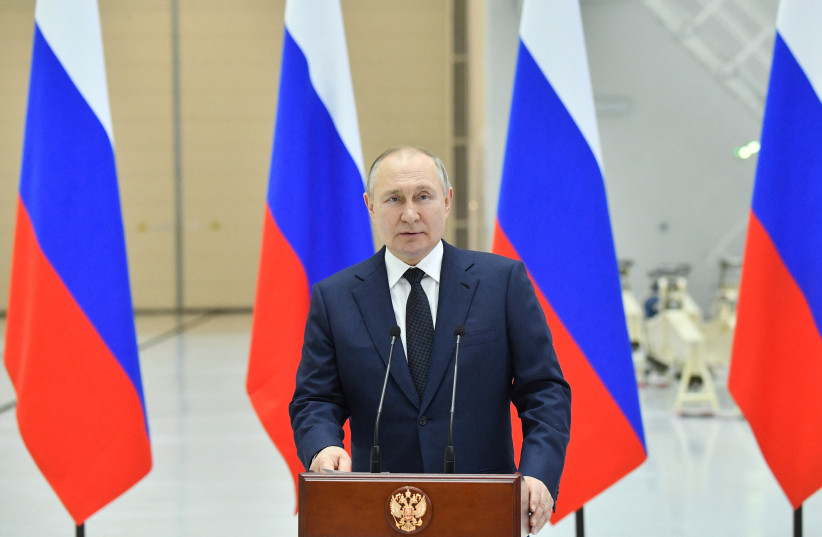There is an unforgettable scene in the classic John Houston Western, The Treasure of the Sierra Madre, in which a fear-stricken Humphrey Bogart, faced by a band of Mexican outlaws, crouches in a hole brandishing a revolver above his head. Temporarily saved by the Mexican Calvary, he was forever branded as “the little man in the hole.”
Russian President Vladimir Putin looks more and more like the “little man in the hole,” with lots of bravado masking his weakness. The odds are against him. The war in Ukraine will not end, as Putin had hoped, with a Russian victory parade in Kyiv.
Ukraine’s current success in Kharkiv in the northeast Donetsk region, after feinting an attack in the south, highlights the difficulties the Russian military faces in bringing its invasion of Ukraine to a successful conclusion. Repercussions from Russia’s recent setback are likely to further embolden Putin’s domestic critics on the Right and Left.
The Russian military stalled in Ukraine has achieved none of its original objectives. The quick victory Putin had hoped for has turned into a costly war with an uncertain outcome.
Russia’s invasion of Ukraine has resulted in upward of an estimated 50,000 Russian soldiers killed and tens of thousands more wounded. Russia’s Black Sea fleet has suffered serious losses, including the sinking of its flagship cruiser, the Moskva, and the Russian Air Force is no longer a potent force.

Russia's other strategic losses
These enormous human and material losses are only part of the cost to Russia. Added to the dead and wounded soldiers are the costs of painful sanctions imposed by the West, a revitalized NATO, Ukraine’s likely admission to the European Union, and Sweden and Finland’s seeking to join NATO.
Western sanctions have seriously limited Russia’s ability to resupply its forces. In response, the little man in the hole has turned to sanction-stricken Iran and North Korea for military assistance. Yet neither country can match the vastly superior arms Ukraine is receiving from the United States and other Western countries. A few decades back, the thought of a once-mighty Russia turning to Iran and North Korea for assistance would have been unimaginable.
Russia’s disruption of gas supplies to Europe through the Nord Stream I pipeline can best be seen as Putin’s rolling the dice, hoping an increase in gas prices will compensate for the loss of revenues and that a cold winter with diminished energy will weaken the resolve of Germany and the West to stand up to him. But long term, the odds are against him.
With a GDP more than 40 times that of Russia’s, the West will find ways to compensate for the decrease in Russian gas supplies. The pain will be real but not enduring. Russia is no match for a resolute Germany intent on not bowing to Putin’s pressure.
In the face of opposition by the Russian people, Putin has abandoned his call for a military draft and is now looking for 100,000 “volunteers” to join Russia’s army in Ukraine. With the morale of Russian forces in Ukraine already reportedly low, these “volunteers” are likely to be the dregs of Russian society, not the hoped-for ideal conscripts Putin sought.
And recently, the mysterious deaths of two prominent Russian citizens – one hawkish and one dovish – highlight the shadow that has fallen over Russia and the likely involvement of Putin’s henchmen in one or both deaths, a further sign still of the darkness that has now enveloped Russia.
As the war in Ukraine drags on, things are not looking up for Vladimir Putin. More and more he resembles the little man in the hole, brandishing his weapons while the treasure he sought at little cost in Ukraine is no longer attainable.
The writer served as US ambassador to Romania, special presidential envoy and senior adviser to the president in two American administrations. He is an op-ed contributor to newspapers and other journals in the US and abroad.
